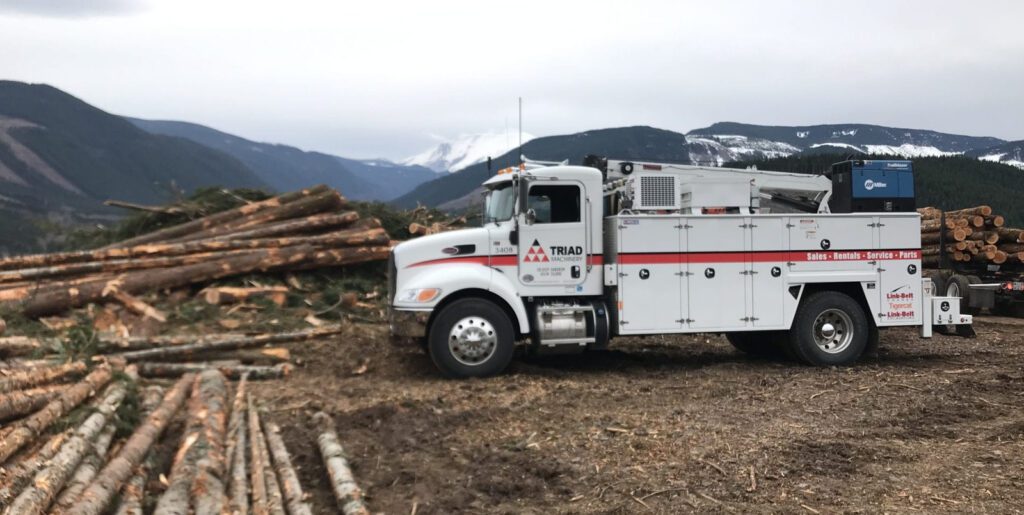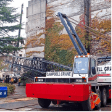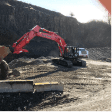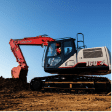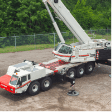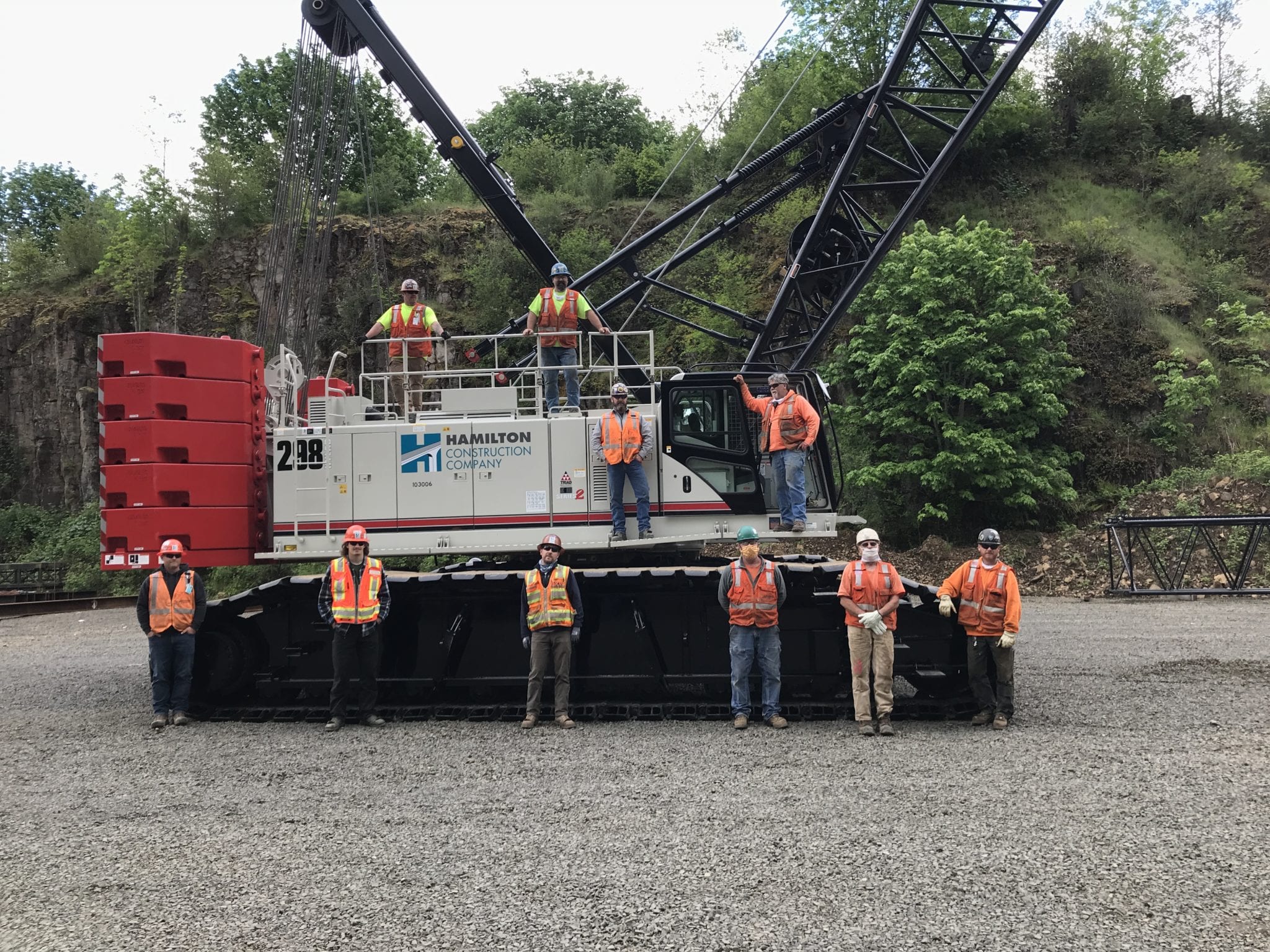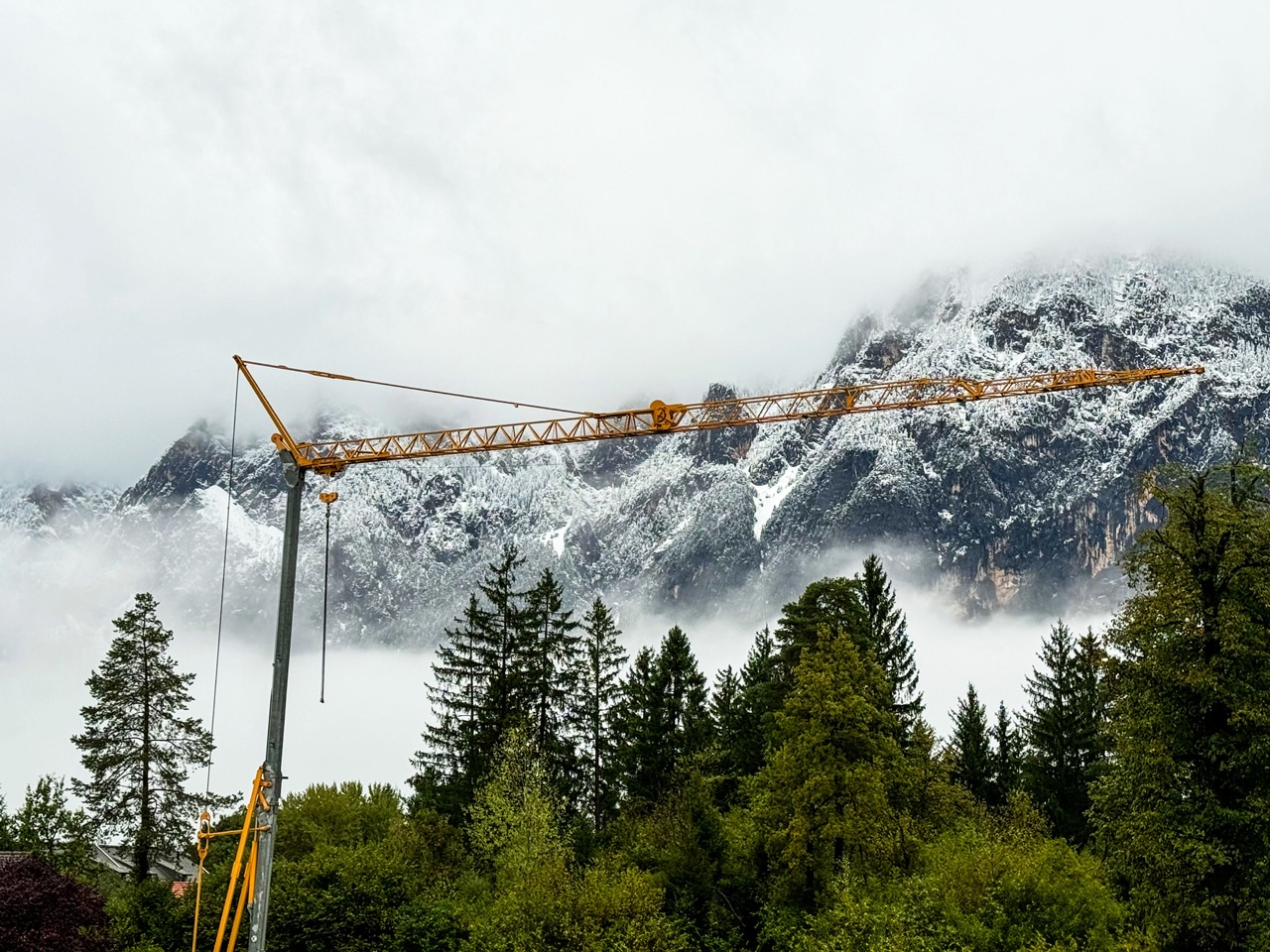Harvesting timber in dense forestland, paving the way for new suburban neighborhoods, and erecting high-rises downtown. For many industries, heavy equipment does a lot of the, well… heavy lifting. So when those harvesters, excavators, or hydraulic trucks go down for any amount of time, field service technicians are often called to get them up and running again.
A service technician for heavy equipment works on machines that are used in many industries. In the forestry industry, they can work on a variety of items from chippers and grinders to log loaders and skidders. They also work with construction equipment such as dozers, backhoes, and graders.
For crane work, technicians will need to specialize in a variety of cranes, from smaller boom trucks to rough terrain cranes to massive crawler cranes that can lift more than 400 tons! All of the work can be quite dangerous, so it’s important that field service technicians know what they are doing!
What Do Field Service Technicians Do?
Duties and responsibilities for service technicians include inspections, installation, repair, and technical skills when dealing with computer systems. They’ll check fuel lines, hoses, filters, belts, brakes, tires, hydraulic systems, and other critical components. They can also perform regular oil changes and lubricants, replace worn or damaged parts, as well as sharpening blades or adjusting settings for optimal performance.
When a machine is not working, or performing well below optimal production, technicians can diagnose the problem and offer solutions. This may involve identifying issues with wiring or other electrical components, troubleshooting complex hydraulic systems, or investigating hardware and software issues. Problem-solving skills are a must in this line of work.
Along with repair work, service technicians may also provide advice and training for operators of heavy equipment on maintenance tasks such as daily checks and lubrication routines. They also need customer service skills so they can discuss safety precautions and other operating procedures.
Service technicians may also provide additional services such as calibrating systems or customizing settings for specific jobs. They often work in customer support to understand their needs and requirements so that they can make adjustments accordingly. Service technicians must also stay up-to-date on new technologies in order to properly troubleshoot and maintain modern machines.
Ultimately, their role is essential in keeping heavy machinery running efficiently and safely so that it can be used day in and day out without any problems. Overall, service technicians are a key piece of the puzzle in keeping heavy equipment running correctly and safely.
With their expertise and experience in troubleshooting and maintaining complex machinery, service technicians are indispensable to many industries. They not only help keep equipment running correctly and safely, but they also help companies to remain productive and efficient.
Are There Differences Between Service Technicians and Field Service Technicians?
Service technicians and field service technicians both have unique roles in repairing and maintaining heavy equipment and systems. A service technician is responsible for fixing machinery in a controlled environment, such as in a workshop or factory setting. A field service technician, however, is responsible for traveling to different locations to repair or maintain various equipment or systems on-site.
Both roles require specialized skills and knowledge to ensure that the job is done correctly. While the roles share similarities, their differences highlight the importance of having professionals who can adapt to the needs of different industries.
Scope of Work
Service technicians are skilled individuals who diagnose, repair, and maintain equipment. While some technicians work in a fixed location, such as a workshop or service center, others work on the go. Field service technicians are responsible for providing on-site support to customers and traveling to the customer’s location to troubleshoot, repair or install equipment.
However, sometimes the repair work might not be possible on-site, and the equipment will need to be taken back to the shop. This may be required if heavy parts need to be lifted up and out of the way or more intense repairs are needed.
Work Environment
When it comes to service technicians, there are two types of environments: those who work in repair centers and those who work everywhere else! Those who work in repair centers tend to have access to large garage bays, specialized tools, and other equipment, which can be advantageous when it comes to fixing complex problems.
Field service technicians, however, have a different set of challenges to contend with. They work in different environments depending on the industry and often find themselves working outdoors in conditions that are less than ideal.
Customer Interactions
When it comes to service technicians, many may assume that they have minimal relationships with customers. This is true for some: they receive equipment from customers, diagnose the issues, perform repairs, and return the equipment. Field service technicians, however, have more direct interaction with customers.
They interact with customers on-site, discussing the equipment issues, providing guidance, and answering any questions or concerns the customers may have. Field service technicians have excellent communication skills and are able to answer any questions or concerns the customer may have.
Looking For Work as a Field Service Technician?
Triad Machinery is almost always looking for solid service technicians, either to work at one of our six locations in the Pacific Northwest or in the field. Go to our careers page, read our field service technician job description, and send us your application. We look forward to hearing from you!

